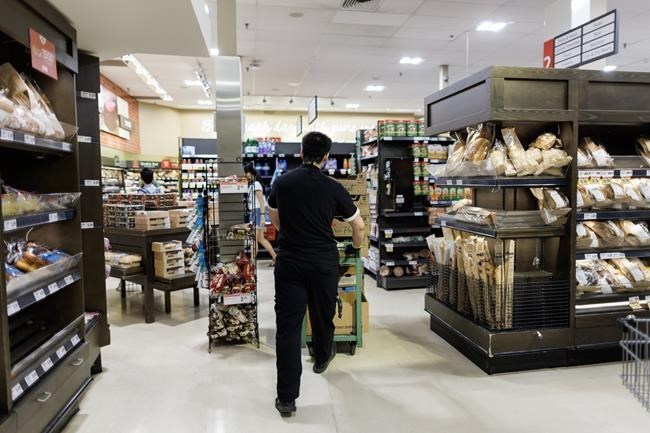Metro Inc. is accusing Loblaw Cos. Ltd. and its parent company George Weston Ltd. of conspiring to implicate them in an alleged bread price-fixing scheme.
In new court documents, the Montreal-based grocer denies being involved in bread price-fixing and accuses the companies of trying to spread the blame across the industry and avoid public perception that Loblaw was the sole retailer involved in price-fixing.
"Metro has suffered, and continues to suffer, significant and unjustifiable damage to its reputation, having been falsely painted as involved in a criminal price-fixing conspiracy when it was not," the retailer said.
Metro submitted a statement of defence and cross-claim to the Ontario Superior Court on Monday, regarding a class-action lawsuit on behalf of all Canadian residents who bought bread after Nov. 1, 2001, except for Quebec residents. Its cross-claim also implicates former George Weston subsidiaries Weston Foods (Canada) Inc. and Weston Bakeries Ltd.
The class-action case has been brought against a group of companies that includes Loblaw and the Weston companies, Metro, Walmart Canada, Giant Tiger and Sobeys and its owner Empire Co. Ltd.
Loblaw spokeswoman Catherine Thomas said in an email that the allegations by Metro are “simply ridiculous and utterly untrue, as will be made clear in court.”
Sobeys has filed its own statement of defence and crossclaim in the class action, spokeswoman Karen White-Boswell confirmed in an email Wednesday evening.
In October, the company said it had been falsely implicated in a conspiracy.
Sobeys' allegations are also untrue, Thomas said.
Walmart Canada has served its defence and denies conspiring to fix the price of bread or violating the Competition Act, spokeswoman Sarah Kennedy said in an October email. Walmart did not respond to requests for an update.
Giant Tiger spokeswoman Allison Scarlett said in an email the company has also served a statement of defence. Giant Tiger denies participating in or knowing about the alleged conspiracy, she said.
The class action also names bakery supplier Canada Bread Co., which in June was fined $50 million after pleading guilty to four counts of price-fixing under the Competition Act. It was the highest price-fixing fine ever imposed by a Canadian court, according to the Competition Bureau.
The bakery giant admitted to arranging with competitor Weston Foods to increase prices for various bread products, resulting in two price increases, one in 2007 and one in 2011.
Canada Bread filed its statement of defence in the class action in October. It denied participating in a wide-ranging conspiracy to fix the price of bread, and denied profiting from the alleged conspiracy or from the price increases it admitted to in June.
The supplier said any anti-competitive behavior it participated in was at the direction and to the benefit of its then-majority owner Maple Leaf Foods. Maple Leaf has called Canada Bread’s accusations “baseless” and said it is not aware of any wrongdoing by Canada Bread or its senior leadership during the time Maple Leaf was a shareholder.
In the statement of defence and crossclaim, Metro said that during the class period, Canada Bread and the Weston defendants had an “effective duopoly” as suppliers of wholesale packaged bread. The two periodically increased wholesale prices to Metro’s Ontario subsidiary during the class period, and the grocer often resisted or negotiated those increases, it said.
The Weston companies knew they would face severe public backlash, reputational damage and potential boycotts if customers saw Loblaw as the sole retailer involved in a price-fixing conspiracy, Metro said in the court documents.
Metro claims it has suffered reputational damage because of its implication in the scandal and is claiming damages against the Weston defendants, saying they “acted in a high-handed and callous manner.”
The Competition Bureau began investigating alleged bread price-fixing in January 2016.
Weston Foods and Loblaw had previously admitted their participation in an "industry-wide price-fixing arrangement" and received immunity from prosecution in exchange for co-operating.
At least $1.50 was added to the price of a loaf of bread during the 16-year conspiracy, the bureau alleged in court documents in 2018.
This report by The Canadian Press was first published Dec. 20, 2023.
Companies in this story: (TSX:MRU, TSX:L, TSX:EMP.A, TSX:WN)
Rosa Saba, The Canadian Press




